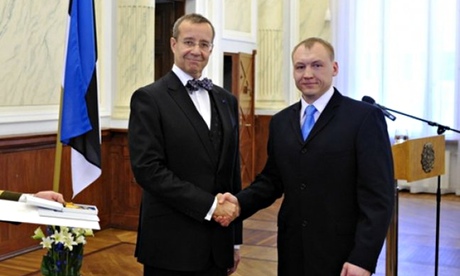By: Ashley Repp
News Desk Reporter, Africa
PRETORIA- South Africa
This week, in a tense courtroom, Judge Thokozile Masipa found Oscar Pistorius, not guilty of murder in the fatal shooting of his girlfriend, Reeva Steenkamp, in 2013. Instead, with regard to her death, he was found guilty of a lesser charge of “culpable murder,” which is the equivalent of manslaughter in the United States. Some, including Steenkamp’s family, expressed that justice was not served here.
On February 14, 2013, Steenkamp went into the bathroom of the master bedroom where she and Pistorius slept. According to Pistorius, he though an intruder was hiding in the small bathroom, took his gun, and shot into the bathroom four times through the door. The prosecution pushed the premise that Steenkamp had locked herself in the bathroom, in an attempt to get away from Pistorius. The prosecution brought text messages between Steenkamp and Pistroius that indicated a rocky and jealous relationship.
The defense argued that Pistorius was raised in a violent and unsafe part of South Africa and as a result, was wary and afraid of the possibility of intruders, which he claimed he believed Steenkamp was the night he shot her. While the judge held that this particular piece of information was immaterial to the trial, she did find that he behaved negligently in shooting into the bathroom four times.
The trial’s outcome turned on the legal finding that not all of the elements to find Pistorius guilty of premeditated or common law murder, were present. Under South African law, to find someone guilty of premeditated murder, the killer must intend and plan to kill the target, which in this case would have been Steenkamp, or whoever Pistorius claimed was behind the door. To find common law murder, the killer must act in the heat of the moment, but lack the “malice aforethought” requisite for premeditated murder. Under this theory, the judge would have to find that Pistroius should have known that shooting into the bathroom would kill whoever was behind the door.
While Masipa did not find these elements entirely fulfilled, she did find Pistorius guilty of culpable murder, a classification that does not require that the actor intended to kill the individual, but acted negligently, counter to how a reasonable person would behave in the same circumstance. Therefore, the decision turned on the finding that Pistorius did not intend to kill, and did not know that his actions would lead to the death of Steenkamp, and that by shooting into the bathroom four times, Pistorius behaved negligently.
Though this decision came as a relief to Pistorius and his family, the verdict was heartbreaking for many who simply cannot come to terms with the notion that Pistorius could have shot into the bathroom without the intent to kill. There is no minimum sentence for culpable murder, and Pistorius will be sentenced in October, pursuant to the decision reached this week.
For more information, please visit:
BBC News- Oscar Pistorius: Minister says verdict is ‘disappointing’- 13 Sept 2014
CNN World- Judge: Pistorius was negligent, but Steenkamp’s killing was not murder– 12 Sept 2014
CNN Wrold- What’s next for Oscar Pistorius– 11 Sept 2014
New York Daily News- Oscar Pistorius murder trial: ‘I can’t believe that they believe it was an accident,’ says Reeva Steenkamp’s mother– 13 Sept 2014



